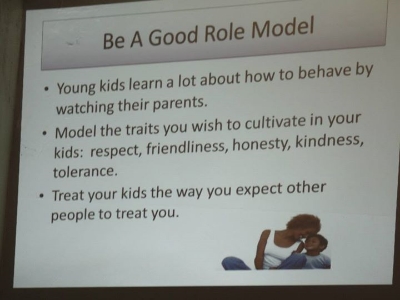Why Parents Matter

Baby University helps parents give their children the greatest gift of all: A parent who can meet their needs and knows how to be their biggest cheerleader.
A recent nationally representative study 1 published in the Research in Social Stratification and Mobility 2 journal presents an important finding: Parenting matters more than school in students’ academic achievements.
In fact, The Telegraph reports 3 that this “study of 10,000 teenagers has found the home environment is three times more important than the school, when it comes to 18-year-olds’ test results.”
“I make more family time for my kids now.”
In a study that targeted parents whose children were about to enter school, they found that improving either parenting practices or the marital relationship had a significant effect one, two and then four years later on children’s behavior and success in school.
The marital intervention had a bigger effect on lowering children’s aggression and improving academic performance while the parenting intervention had a greater influence on reducing shy and withdrawn behavior.

Presentation at a Baby U class.
Quick Facts on Parental Involvement
- Children who have parental support are likely to have better health as adults.
- Students with involved parents tend to earn higher grades, have better social skills, and are more likely to graduate and go on to post-secondary education.
- Children are more likely to be socially competent and have better communication skills when they have parents who are sensitive to their needs and emotions.
- Teens who are monitored by their parents are one-quarter as likely as teens with “hands-off” parents to smoke, drink, and use drugs.
“I learned how to understand and listen to my children.”
The relationship that parents share with their children is one that impacts a child throughout his or her lifetime. Studies show that the benefits of parental involvement are manifold, affecting numerous areas of a child’s life, including health and development, academic progress, and life choices.
Home Life
“A vast store of research, …. has confirmed that what young children learn, how they react to the events and people around them, and what they expect from themselves and others are deeply affected by their relationships with parents, the behavior of parents, and the environment of the homes in which they live.” 4
Early Relationships
“What gives the parent a special place in the young child’s life? What does the close emotional relationship with the parent provide that other adults cannot replicate?
“To answer such questions, researchers have focused on the development of security, confidence, and trust between infants and toddlers and their parents. This central feature of early relationships is captured by the concept of “attachment security.”
“In the rare situations in which infants do not have the opportunity to form an attachment with even one trusted adult, their development can deteriorate rapidly and dramatically.
“The remarkable recovery that these infants display once they receive stable care and loving attention further reveals the importance of the child’s earliest intimate relationships.” 5
“No significant learning occurs without a significant relationship.”
- James Comer (1995)
External Links:
- Mikaela J. Dufur, Toby L. Parcel, Kelly P. Troutman. Does Capital at Home Matter More than Capital at School? Social Capital Effects on Academic Achievement. Research in Social Stratification and Mobility, 2012; DOI: 10.1016/j.rssm.2012.08.002
- Research in Social Stratification and Mobility - “The study of social inequality is and has been one of the central preoccupations of social scientists.” - Found at journals.elsevier.com.
- Oct 11, 2012 telegraph.co.uk story titled Good parenting ‘matters more than a good school’
- Bradley et al., 1988; Collins and Laursen, 1999; Dunn, J., 1993; Hartup and Rubin, 1986; Maccoby and Martin, 1983
- Neurons to Neighborhoods: The Science of Early Childhood Development - Published in 2000 by the Committee on Integrating the Science of Early Childhood Development. Found at nap.edu and at Amazon.com.
Parental Involvement in Children’s Academic Success
Excerpts from an Oct 10, 2012 blog post by Education Week titled Parents More Influential Than Schools in Academic Success that references the Research in Social Stratification and Mobility study mentioned above.
Parents who want their children to succeed academically in school have more influence over that outcome than the schools themselves, according to a study by researchers from three universities [North Carolina State University, Brigham Young University, and the University of California-Irvine].
To arrive at their findings, researchers used the National Education Longitudinal Study data to evaluate social capital at home and at school.
Researchers compared measures of “family social capital” and “school social capital,” discovering that even in schools that had low social capital, students were more likely to excel if their family social capital scores were high.
Measures of family social capital included:
- Does the parent check the student’s homework?
- Does the parent attend school meetings?
- Does the parent attend school events?
- How much trust does the parent have in the child?
- How often do students report discussing school programs, activities, and classes with parents?
To measure school social capital, which is defined as a school’s ability to serve as a positive environment for learning, the researchers evaluated:
- Student participation in extracurricular activities;
- Whether the school contacted parents;
- The level of teacher morale;
- The level of conflict between teachers and administrators;
- Whether teachers responded to individual student needs; and
- An overall measure of school environment that tapped delinquency, absenteeism, and violence.